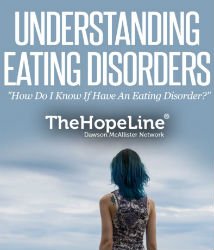Physical and emotional consequences
Eating disorders can have serious physical and emotional consequences. The longer an eating disorder goes untreated, the greater the risk of these consequences.
Physical consequences:
- Malnutrition and starvation
- Electrolyte imbalances (which can lead to heart problems, seizures, and even death)
- Gastrointestinal problems (such as acid reflux, constipation, and bloating)
- Menstrual irregularities or the loss of menstrual periods
- Loss of bone density (osteoporosis)
- Dry skin and hair loss
- Anemia
- Fatigue
- Weakness
- Insomnia
- Cold intolerance
- Hypothermia
Emotional consequences:
- Low self-esteem
- Negative body image
- Anxiety and depression
- Shame, guilt and isolation
- Difficulty expressing emotions
- Difficulty forming and maintaining relationships
- Substance abuse
- Suicidal thoughts or attempts
Eating disorders can also lead to long-term physical health complications such as obesity-related health problems like diabetes, high blood pressure and heart disease. The emotional consequences of eating disorders can be just as severe as the physical consequences. People with eating disorders may experience feelings of shame, guilt, and isolation, which can make it difficult to form and maintain relationships. Eating disorders can also be accompanied by other mental health disorders such as depression, anxiety, and substance abuse.
It is important to seek help as soon as possible if you suspect that you or someone you know may have an eating disorder. With proper treatment, recovery is possible, and the risk of physical and emotional consequences can be reduced.










Recent Comments